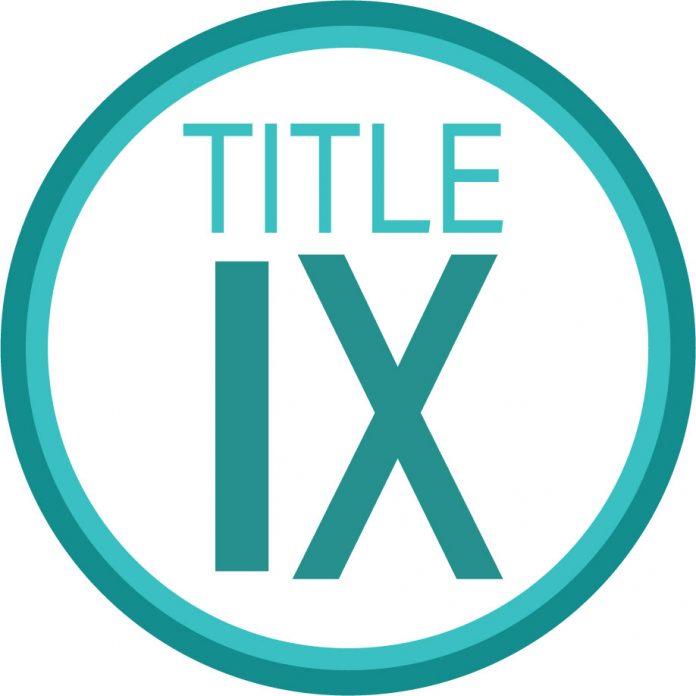Jacob Wong
National Beat Reporter
In a press release issued earlier this month, the UC Office of the President (UCOP) voiced concerns regarding the U.S. Department of Education’s proposed Title IX rule changes for cases of sexual assault and sexual harassment. In the statement, UC Interim Systemwide Title IX Coordinator Suzanne Taylor claimed the changes would undo years of efforts that the UC and other universities had already taken to protect survivors of sexual assault.
Upon the release of the proposed rule changes on Nov. 16, Department of Education officials maintained that the changes were intended to provide clarity and due process for all parties involved in cases of sexual assault and harassment.
The main provisions of the changes to Title IX include a categorical definition for sexual harassment, requirements that schools “respond meaningfully to every known report of sexual harassment and investigate every formal complaint,” and guidelines for how schools should conduct sexual assault investigations.
The investigation guidelines place a heavy emphasis on due process and protections for both parties. The new regulations maintain a presumption of innocence throughout the grievance process, the right for both parties to appeal if a school offers one, and the right to cross-examination.
“Far too many students have been forced to go to court to ensure their rights are protected because the Department has not set out legally binding rules that hold schools accountable for responding to allegations of sexual harassment in a supportive, fair manner,” said U.S. Secretary of Education Betsy DeVos. “By following proper legal procedures and receiving input on our proposed rule, we will ultimately have a final regulation that ensures that Title IX protects all students.”
Such talk of presumed innocence and fair hearings coincides with a growing national debate over the nature of sexual assault cases and how to properly handle them from a litigation standpoint. The question of what it means to consider people accused of sexual assault “innocent until proven guilty” has emerged in a number of recent cases ranging from the nomination of Supreme Court Justice Brett Kavanaugh to a recent overturned suspension of a UCSB student accused of sexual assault.
While DeVos maintains that the rule changes are about fairness and clarity, critics such as Taylor argue that they place limitations on universities that already have systems in place to address sexual harassment cases.
In the UCOP press release, Taylor called the rules “prescriptive,” pointing out the fact that they require universities to hold live hearings rather than allowing them to follow their own investigative models. For example, under current UC policy, the campus’s Title IX Officer can choose to launch an investigation into any sexual harassment case at his or her own discretion.
With the new rules, the Department of Education has made it a point to keep campuses from employing this kind of “single-investigator” model in order to “promote impartial decisions.” The logic here is that having both the accused and the accuser testify in a live hearing would result in a more fair investigative process.
Taylor also accused the Department of Education of “narrowing the scope of what constitutes sexual harassment,” contending that the Office for Civil Rights (OCR) and other universities had already applied and enforced their own definition for decades.
The Office for Civil Rights, which is a subset of the US Department of Education, provides the following definition for sexual harassment on its website: “Sexual harassment is unwelcome conduct of a sexual nature. It includes unwelcome sexual advances, requests for sexual favors, and other verbal, nonverbal, or physical conduct of a sexual nature.”
Under the DeVos proposal, sexual harassment would be defined as “unwelcome conduct on the basis of sex that is so severe, pervasive, and objectively offensive that it effectively denies a person equal access to the school’s education program or activity.”
Lastly, Taylor contended that the changes would greatly restrict the ability of OCR to enforce Title IX protections. She wrote, “In stark contrast to its current enforcement powers, OCR would not require changes to a school’s process unless it determines the school is ‘deliberately indifferent,’ an incredibly high standard. Applying these standards to other areas of OCR’s jurisdiction, if that is ED’s intent, will also undermine important civil rights laws that protect students from racial and disability discrimination.”
The Department of Education’s proposed Title IX rule will be open for public comment for 60 days from its Nov. 16 date of publication. To view the Department’s one page summary of the proposed Title IX rule, click here. To view the proposed rule in its entirety, click here.











